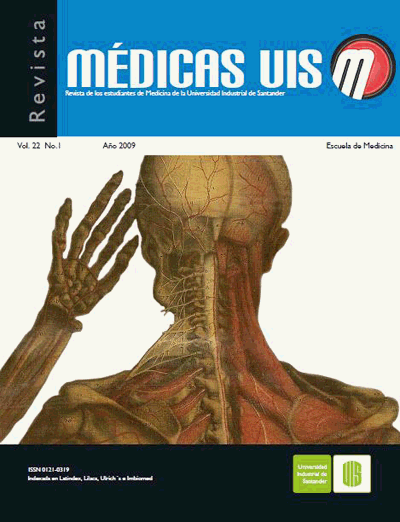Abstract
OBJECTIVE: identify the rejection arguments manifested for the puerperae claimant users of the Cardenas, Tabasco, that reject family planning methods post-childbirth of high continuity (intrauterine device and bilateral tubal occlusion).
MATERIAL AND METHODS: study of design observational, prospective, traverse and descriptive. Puerperae, claimant users of the Instituto Mexicano de seguridad social, Cardenas, Tabasco. August/2006-March/2007.
SAMPLE FOR CONVENIENCE: patients whose childbirth was attended in the General Hospital of Zone No. 2 of Cardenas, Tabasco, captured during the daily pass of visit.
VARIABLES: age, civil status, pregnancies number, childbirth way, rejection argument of the family planning methods. Data was obtained for survey method, previous informed consent. Be estimated descriptive statistics, and be analyzed partially the discourse.
RESULTS: 183 puerperae of 15 to 44 years-old. Predominant civil status 140 married (76,5%). Pregnancies mean 2, mode 2, minimum 1, maximum 9.
CHILDBIRTH WAY: 85 vaginal (46,4%), 98 abdominal (53,6%). Family planning methods acceptors 105 (57,4%) rejection 78 (42,6%). 18 manifested 1 argument (23%), 60 declared more of 1 argument (77%). Rejection argument manifested as frst consideration: "my partner and/or family doesn't consent" 34,2%. Explication offered with major frequency as second rejection argument: "fear to medial complications secondary to it" 35,6%.
CONCLUSIONS: The covering of family planning post-childbirth in the medical unit is low. The arguments manifested for the patients to reject the show that the women possess lack of property sentiment over your body; and that exist disinformation over use, indications, benefts and risks of the family planning methods.
Key words: Reproductive health. Family planning methods. Rejection arguments.
References
2. Consejo Nacional de Población (CONAPO). La situación demográfica de México. México, D.F.: Ediciones del CONAPO.1997:16.
3. Secretaría de Salud. Salud: México 2001-2005. Información para la rendición de cuentas. Primera Edición. Secretaría de Salud. 2006. P.p. 116-7. Disponible en: http://www.salud.gob.mx
4. Moos MK, Bartholomew NE, Lohr KN. Counseling in the clinical setting to prevent unintended pregnancy: an evidence-based research agenda. Contraception. 2003;67(2):115-32.
5. Instituto Mexicano del Seguro Social, División Técnica de Información Estadística. El IMSS en cifras. Evaluación del desempeño de las instituciones de salud. México, 2004. Rev Med Inst Mex Seguro Soc 2006;44(5):481-8.
6.Díaz-Mendoza A, Vila-Contreras S, Libreros-Bango V. Impacto de una estrategia educativa para la aceptación de métodos de planificación anticonceptivos de alta continuidad durante el posparto. [En prensa] Rev Med Inst Mex Seguro Soc.
7. Velasco-Murillo V, Padilla I, De la Cruz L, Acosta-Cázares B. ENCOPREVENIMSS 2003. Rev Med Inst Mex Seguro Soc. 2006;44(Supl1):S87-S95.
8. Creel J, Sass J, Yinger N. La calidad centrada en el cliente: perspectivas de los clientes y obstáculos para recibir atención. Nuevas perspectivas sobre la calidad de la atención. 2002, Diciembre. Washington D.C., EUA. Disponible en: http://www.popcouncil.org /frontiers/frontiers.html.
9.Vásquez ML, Argote LA, Castillo E, Cabrera MJ, González D, Mejía ME, Villaquirán ME. Apropiación de los derechos sexuales y reproductivos en los adolescentes: una experiencia desde la teoría de la acción razonada. Colombia Médica 2005;36(3):14-24.
10. Instituto Mexicano del Seguro Social. Cobertura de métodos de planificación familiar posparto. Sistema de Información Médica Ordinaria. Instituto Mexicano del Seguro Social. Tabasco, México. 2005. Disponible en: http://evaluacion.salud.gob.mx
11.Instituto Mexicano del Seguro Social. Indicadores de desempeño. Coordinación de Salud Reproductiva. Instituto Mexicano del Seguro Social. 2005. Disponible en: http://evaluacion.salud.gob.mx
